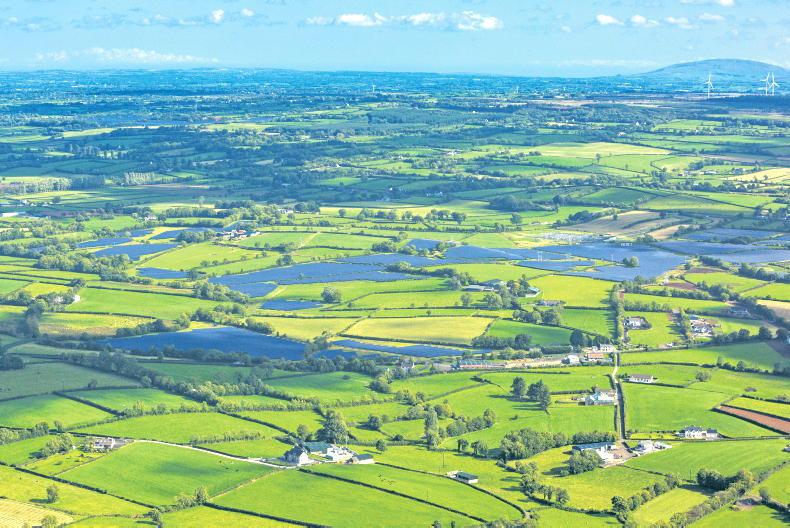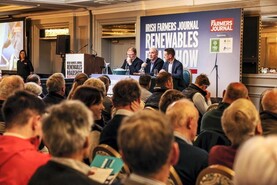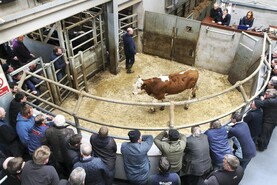BayWa r.e. has been active in Ireland since 2019 and has since developed a strong knowledge of the local market. The company specialises in wind and solar project development, from early stage site identification, over construction to commissioning, as well as the operation and maintenance of the completed power plant.
BayWa r.e. can rely on its global network. It is one of the largest international providers of photovoltaic (PV) plants and decentralised energy solutions, with a presence in over 29 countries and more than 3,000 employees globally.
Developing solar farms is a crucial part of the renewable energy generation mix in order to meet the Government’s net zero targets by 2030 and farmers will play an essential role in providing the necessary land for development.
How will farmers benefit?
Irish farmers have the opportunity to lease their land to BayWa r.e. on a long-term basis, usually for 35 years or even longer. That means farmers can rely on a hassle-free investment, while securing a usage fee over the entire lease period. With BayWa r.e. they also have a reliable partner that takes care of all services and maintenance during the entire project.

Can the land still be used by the farmer?
Yes. The farmer can be granted grazing rights to the land when the solar farm is operational. As the solar panel foundations only cover around 5% of the land, the land is used for grazing and providing natural habitats for other animals. Small livestock such as sheep or poultry are especially suitable for grazing on solar farm land. While the project is going through the development process, farmers can use the land as they wish. After the lease, BayWa r.e. will decommission the solar farm and return the land to the farmer in its original state. Usually, this means that the land will have better soil quality than before, as it has not been impacted by intensive farming practices or treated with pesticides or fertilisers for several decades.

BayWa r.e. can also offer agri-PV installations for existing crops that don’t just produce environmentally-friendly energy, but also reliably protect crops from rain and wind. Farmers can hereby profit from their crop acreage twice over.
What are the land requirements?
In order to qualify for development into a solar farm, farm land should be:
Relatively flat: in order to perform effectively, solar farms need to be erected on even ground.In areas of high irradiance levels: The more sunlight there is in a region, the more suitable it is for capturing solar energy. In Ireland, that is mostly around the south-west and east of the country, however new technologies now make it possible to also capture solar energy in less sunny areas.In proximity to grid connection substation or high voltage line running through the farmland: The energy that is captured by the solar panels will need to be fed into the grid. It is therefore essential that the potential land has access to a suitable grid connection.Contact the company’s team in Cork by emailing: Infosolar-ie@baywa-re.ie, or calling 021 2378 200.
BayWa r.e. has been active in Ireland since 2019 and has since developed a strong knowledge of the local market. The company specialises in wind and solar project development, from early stage site identification, over construction to commissioning, as well as the operation and maintenance of the completed power plant.
BayWa r.e. can rely on its global network. It is one of the largest international providers of photovoltaic (PV) plants and decentralised energy solutions, with a presence in over 29 countries and more than 3,000 employees globally.
Developing solar farms is a crucial part of the renewable energy generation mix in order to meet the Government’s net zero targets by 2030 and farmers will play an essential role in providing the necessary land for development.
How will farmers benefit?
Irish farmers have the opportunity to lease their land to BayWa r.e. on a long-term basis, usually for 35 years or even longer. That means farmers can rely on a hassle-free investment, while securing a usage fee over the entire lease period. With BayWa r.e. they also have a reliable partner that takes care of all services and maintenance during the entire project.

Can the land still be used by the farmer?
Yes. The farmer can be granted grazing rights to the land when the solar farm is operational. As the solar panel foundations only cover around 5% of the land, the land is used for grazing and providing natural habitats for other animals. Small livestock such as sheep or poultry are especially suitable for grazing on solar farm land. While the project is going through the development process, farmers can use the land as they wish. After the lease, BayWa r.e. will decommission the solar farm and return the land to the farmer in its original state. Usually, this means that the land will have better soil quality than before, as it has not been impacted by intensive farming practices or treated with pesticides or fertilisers for several decades.

BayWa r.e. can also offer agri-PV installations for existing crops that don’t just produce environmentally-friendly energy, but also reliably protect crops from rain and wind. Farmers can hereby profit from their crop acreage twice over.
What are the land requirements?
In order to qualify for development into a solar farm, farm land should be:
Relatively flat: in order to perform effectively, solar farms need to be erected on even ground.In areas of high irradiance levels: The more sunlight there is in a region, the more suitable it is for capturing solar energy. In Ireland, that is mostly around the south-west and east of the country, however new technologies now make it possible to also capture solar energy in less sunny areas.In proximity to grid connection substation or high voltage line running through the farmland: The energy that is captured by the solar panels will need to be fed into the grid. It is therefore essential that the potential land has access to a suitable grid connection.Contact the company’s team in Cork by emailing: Infosolar-ie@baywa-re.ie, or calling 021 2378 200.









 This is a subscriber-only article
This is a subscriber-only article






